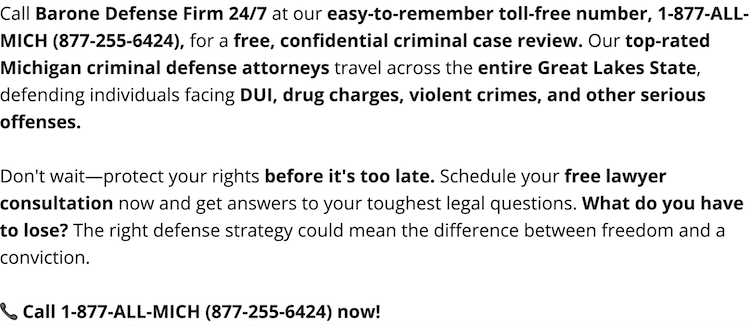Fraud in Securing a Loan or Credit Application
Many people make many sworn statements to the federal government every year, even if they do not realize it. In fact, the United States government has a hand in most financial transactions. For the most part, though, federal laws overseeing such transactions are intended to protect consumers from predatory banks or lenders.
However, customers in these situations are also required to make accurate and truthful statements to banks insured by the FDIC, as well as to any financial program or institution backed by the U.S. government. Any intentional misstatement or false filing that you make with any financial institution may be an example of fraud.
Federal law severely punishes people convicted of fraud under credit applications laws. If you are facing these charges, you may need to take strong steps to protect yourself, and working with a Michigan fraud in securing a loan or credit application lawyer could be a strong option. A dedicated fraud attorney could work to contest the prosecutor's case regarding whether the statement made was false and whether you intended to defraud a financial institution.
Which Laws Control the Process of Securing a Loan or Filing a Credit Application?Many financial institutions are backed by the Federal Deposit Insurance Corporation or FDIC for short. This corporation protects consumers by guaranteeing the funds they place in the bank will be accessible at all times, but it also allows the federal government to regulate and control people's interactions with banks.
There are many federal initiatives designed to provide loans to private citizens that are subject to federal law. These include:
- Federally related mortgage applications
- The Rural Development Administration
- Federal land banks
As a result, Congress passed a law that strictly controls the process for filing an application for these loans. This law also heavily punishes those who commit fraud in the same context.
According to 18 U.S.C. §1014, it is a crime for any person to knowingly make a false or misleading statement on any federally backed or provided loan program. Any person who violates this statute is guilty of a felony and can be sentenced to as many as 30 years in prison and be ordered to pay up to $1,000,000 in fines.
How a Prosecutor Secures a Fraud ConvictionJust like any other accusation of fraud, the prosecutor for a loan or credit application case must prove beyond a reasonable doubt not only that the defendant made a false statement on an application, but also that they did so with the intent to deceive the bank or government.
Often, whether a person made a false statement is not in dispute. If a person overreports their income in an attempt to obtain a home loan, for instance, it is very easy to verify. In fact, many Michigan fraud in securing a loan or credit application attorneys concede this fact in such cases.
Instead, most cases hinge on whether the defendant made a false statement with the intent to deceive the bank. To return to the previous example, a prosecutor must prove that the defendant intentionally overstated their income on the mortgage application rather than just making an honest mistake. It can be difficult to prove this to a jury, and Michigan fraud in securing a loan or credit application lawyer defending someone accused of fraud in securing a loan or credit application may utilize many strategies designed to create reasonable doubt regarding the defendant's motivations in making false statements.
A Michigan Fraud in Securing a Loan or Credit Application Attorney May be Able to HelpAllegations that you have violated federal law by intentionally making a false statement on a loan or credit applications are serious matters. These are felony-level charges for which a conviction can result in a multiple-year prison sentence and the payment of heavy fines.
Working with a Michigan fraud in securing a loan or credit application lawyer could be a good way to prevent this from happening. Your attorney could work to examine every aspect of the prosecutor's case, identify any potential weaknesses, and exploit those weaknesses in court. Whether you are accused of defrauding a bank or a federal loan program, call today to schedule a consultation and see what your options may be.
 Barone Defense Firm Home
Barone Defense Firm Home




















